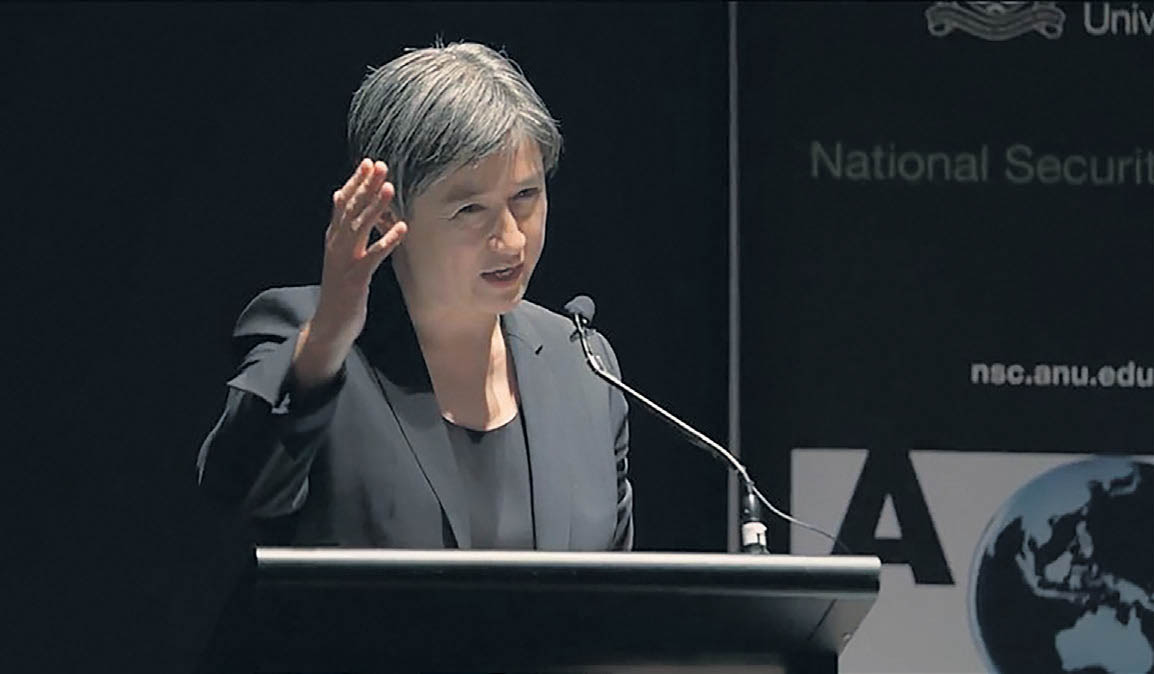Better representation of Asian Australians in politics is needed more than ever
With a federal election looming in Australia, the representation of ethnic minorities in the country’s politics will be almost certain to come under the spotlight again. Asian Australians have long been a topic of analysis and debate because of Australia’s anti-Asian past and the new politics of ethnic representation. Analysts and observers, including myself, will devote special attention Chinese-Australian candidates and how the communities will vote in the coming election, after years of being suspected of being the fifth column of Chinese communists and having their loyalty to Australia openly questioned.
In my 2020 book, Chinese Immigration and Australian Politics, 1 I examine how, on the surface, Chinese Australians have been so active that many new groups and associations have been created and party politics-related activities – both pro-Labor and pro-Liberal – have been frequently held in the community. As a result of their high levels of social activism and political participation, there has also been a recent upward trend in electoral participation by Chinese Australians. There were 21 candidates of Chinese origin in the most recent federal election in 2019, after only six ran in 2016, seven in 2013, three in 2010, and seven in 2007.
The surge in the number of preselected candidates of Chinese origin – and the activities of such candidates – have, however, been mistaken and misused by some as evidence of alleged Chinese interference in Australian politics and public life. After the 2019 election, the push to counter China’s interference in Australian affairs, as well as anti-Chinese sentiments, have escalated to an unprecedented level. Many sections of the Chinese-Australian communities feel threatened when some counter-spy and -espionage measures have been widely implemented. What has made the situation worse is that Sinophobia has permeated public discourse by unethical media outlets in the country, creating even more racial stereotyping and bias than before. 2
As a long-time observer of the fast-growing Chinese-Australian community, I can see that there is a great deal of misconception and mistrust, both in terms of the facts and the way they are interpreted, in the many hostile comments made by politicians, journalists, and critics. Fear has long been part of the psyche of European settlers in Australia, and China has long been seen as a peril in the Australian imagination. This round of Sinophobia is, however, different and characterised by a mistake of believing that many activities by Chinese Australians are driven by geopolitics, or that they are guided by China’s ruling communist party. Many networking activities of Chinese-Australian businesspeople, which have been promoted by Australian government bodies and businesses, are seen as signs of China’s meddling in Australia’s domestic affairs.
My analysis has shown that many critics are unversed in what a succession of Australian governments has been doing over recent decades in using migration schemes to sustain the country’s socio-economic development. The reckless ‘othering’ of the Chinese has failed to consider Australia’s post-war historical shift towards Asia and the merit-based migration system that has been developed and implemented since the 1990s. Both the strategic shift and the merit-based migration system have not only transformed the economic structure and the demographic composition of Australia, but importantly have also changed established patterns in the distribution of employment opportunities, wealth, and political influence in Australia.

Fig. 1: Senator Penny Wong speaking at the Australian National University (ANU) in 2017 (Image reproduced under a Creative Commons licence courtesy of a WikiMedia Commons user).
Australia’s immigration selection criteria have been progressively developed to emphasise the importance of qualifications, skills, business experiences, and financial capacity. As a result, more Chinese migrants are from mainland China as it has become a key producer of most tradable goods. The immigration regime has also resulted in the Chinese-Australian community being a few years younger than the median age of the total Australian population. They have become better educated and qualified in comparison with portions of the Australian population, and many of them are also financially better off than previous generations, making it possible to set up and run more businesses. Australia’s high dependence on trade with China, as well as tourism and international education, have placed many Australians of Chinese origin in a position to capitalise economically. It is fair to say that these changes had been welcomed since the mid-1990s – before the recent Sinophobia – as Chinese Australians not only meet Australia’s need for more skilled labours, but also bring other benefits to the country.
All of the above changes have added a new and unfamiliar dimension to Australian politics, aggravating the long-brewing resentment of many Australians towards those of Chinese origin.
This negative sentiment has been exacerbated by other related issues, such as the activities of some ethnic Chinese buyers in Australia’s housing market and their strangely enthusiastic interest in community and network-building activities. The latter is beyond the comprehension of many non-Chinese Australians, as they are unable to imagine the need of Chinese Australians for networks. Many also question the donations by Chinese Australians to political parties, but almost no one challenges the parties that accept these donations.
After several years of particularly xenophobic sentiment in Australia, questions have been raised in regard to the future of multiculturalism and ethnic diversity in Australia. Specifically, many Asian Australians are now wondering whether they could buy a house without upsetting others, and to what extent their children can academically perform well without facing discrimination. Ordinary Asian Australians want to know when Australian society can once again become as tolerant as before and when it will accept the reality of its ethnic diversity.
Jia Gao is Professor at the Asia Institute, the University of Melbourne. He has authored the following books on new Chinese migrants in Australia: Chinese Activism of a Different Kind (2013, Brill); Chinese Migrant Entrepreneurship in Australia from the Early 1990s (2015, Elsevier); and Chinese Immigration and Australian Politics (2020, Palgrave Macmillan). Email: jia@unimelb.edu.au